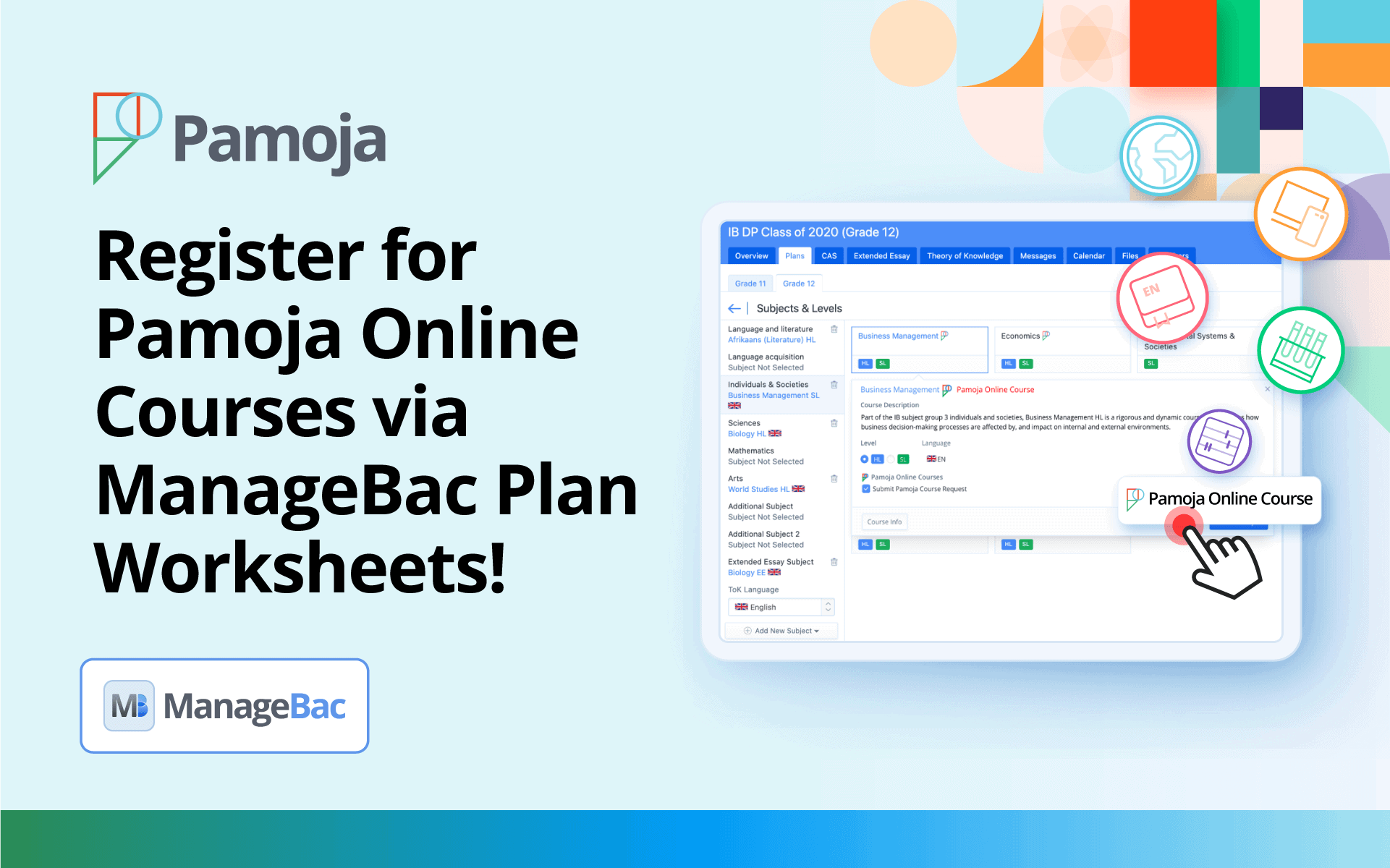Hello! My name is Eric – I began the IBDP Business Management HL in September 2018 and I’m from Northville, Michigan.
What exams do I have on my course?
In the IB Business Management HL course, there are 3 unit tests (Business Organization and Environment, Human Resource Management, and Marketing), an End of Year 1 exam, and the Mock Paper 2 exam.
Each of these assessments holds significant weight in the Pamoja grade and are opportunities to practice for the official Paper 1 and 2 exams of May 2020. These exams are relatively infrequent, and therefore we are allowed a lengthy time period in order to revise and prepare.
This requires students to self manage when and how they will revise. When I began this course and was allocated three weeks to study for an exam, I had no idea how I would use my time. Now that I’ve successfully prepared for several of these exams, I have devised a method of scheduling the revision that has worked well for me and is applicable to most exams!
Strategy for Formulating a Revision Schedule
First, it is important to set a goal for the number of marks you wish to achieve on the exam. Study the sections of a practice exam to understand which hold the most weight and which cater most to your strengths, and find a middle ground between them. Whatever lies in the content of the most important section of the exam is what your focus should primarily be on.
When revising for IB exams, most of your time should be focused on learning the content itself, but a solid amount of time should be focused on answering practice questions. When it comes to learning the content, I make notes straight from the textbook based on the topics that are highlighted for the course guide of the subject.
Once I finish notes on a particular area, I like to compare them to existing notes and outlines that are accessible online and see if I missed any key concepts.
Additionally, video lectures from instructors who teach my course in class are often available and offer an alternative source of information to make notes off of. Video lectures are particularly helpful because they provide examples and applications of concepts that are not available elsewhere. Pamoja teachers also broadcast live video lectures that discuss different concepts that are helpful study tools.
Essay writing in exams
A unique challenge that business management exams pose is “Section C” of Paper 2, in which you write an essay about a business that you have researched, linking a scenario in that business to concepts which we have covered in the course.
This requires the student to research general information about several businesses and find new developments in each that link to relevant business concepts. This section is worth almost half of the marks of the Paper 2 exam and requires substantial additional research.
One of the most useful ways I am able to prepare for these sections of exams is by creating a table with each of the business concepts, their definitions and evaluation, and real-life situations that apply.
My key strategy is to read as many articles as possible and compile their information into my own words on the table. The act of paraphrasing helps me solidify this information and use it as I answer the Section C question.
As you can see, there is a lot of work to do in order to properly revise for Pamoja exams. Listing all of the tasks that you want to complete as part of your revision provides clarity, but also can be overwhelming. This is why it is important to formulate a revision schedule with concrete tasks.
My Typical Revision Schedule
Week 1:
Sunday – Make notes for chapter 1.1-1.7 (~4 hours)
Tuesday – Make notes for chapter 2.1-2.6 (~2 hours)
Thursday – Make notes for chapter 3.1-3.5 (~2 hours)
Saturday – Make notes for chapter 3.6-3.9 (~2 hours)
Week 2:
Monday – Make notes for chapter 4.1-4.8 (~4 hours)
Wednesday – Make notes for 5.1-5.7 (~3 hours)
Friday – Revise and add notes for chapters 1, 2, 5 from online notes and video lectures (~1 hour)
Sunday – Revise and add notes for chapter 3 & 4 from online notes and video lectures (~1 hour)
Week 3:
Tuesday – Make notes for all businesses for section C (~5 hours)
Thursday – Practice exam (~2 hours)
Saturday – Practice exam and review all notes (~3 hours)
I try to limit my revision to around 3 or 4 days a week so that I don’t feel overworked and I can work on other schoolwork on other days.
As you can see, I am going through the content at quite a rapid pace, but it is because this is not the first time I have made notes on these concepts.
The most important part of my schedule is the time estimations that I make for each task. Time estimations allow me to build this revision time into my life schedule and ensure that I have enough time each day to complete these tasks. The time allocations vary per day in order to allow for more flexible scheduling; it’s generally unrealistic for a student to spend 4 or 5 hours on a topic every time they study.
Overall, revision becomes more much enjoyable and less overwhelming through the creation of a revision schedule. However, it is still a challenge to keep consistent with a revision schedule.
What is convenient about mine is if I fall behind and miss a revision session, I have other days of the week in which I could make that work up without having to double up on revision. I wish all current and potential students good luck on revising for exams!
Sign up to our monthly newsletter to keep up to date with all the latest Pamoja news.





